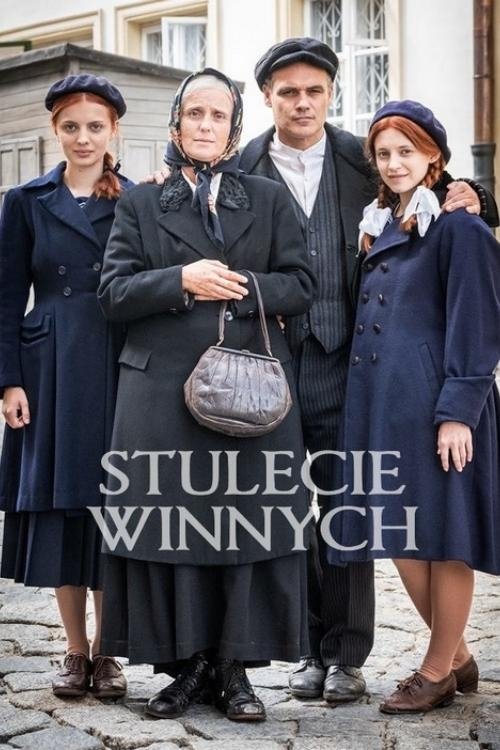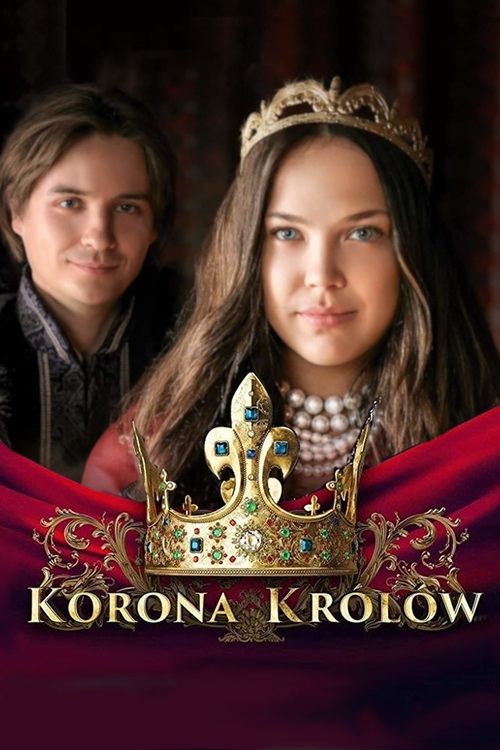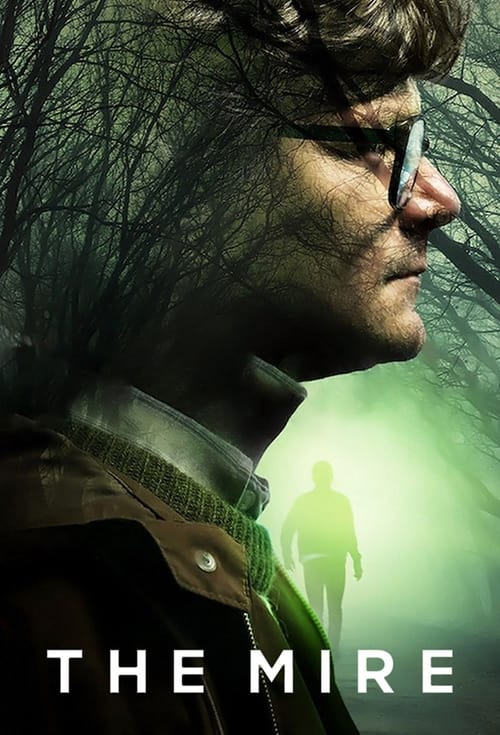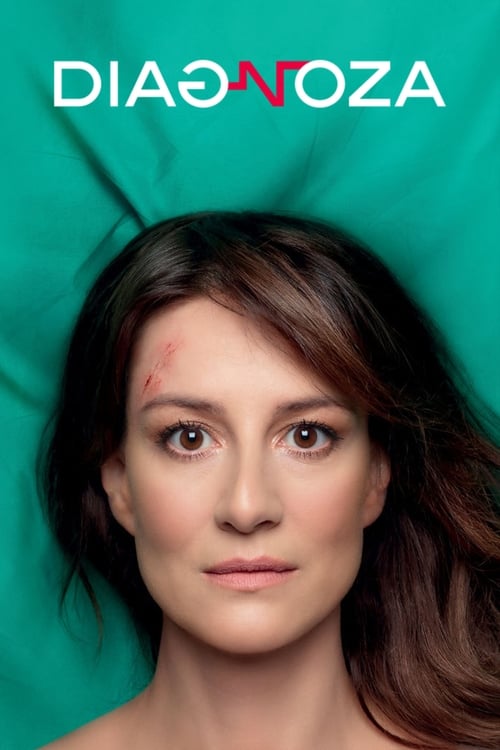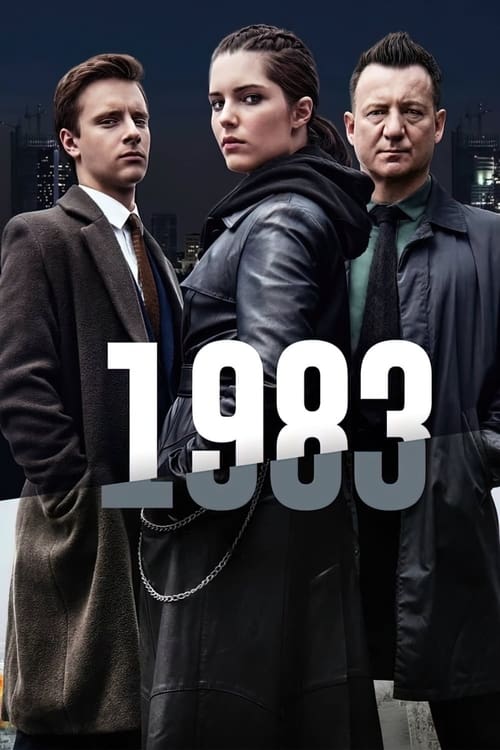No Image
Ask Your Own Question
What is the plot?
In the first episode of "Our Century," we are introduced to the main character, a young woman named Clara, who lives in a small town. The story begins with Clara waking up in her modest bedroom, surrounded by posters of historical figures and a calendar marked with important dates. She is preparing for a local history competition, which she hopes will earn her a scholarship. Clara's passion for history is evident as she meticulously organizes her notes and practices her presentation in front of a mirror.
As Clara heads to school, she encounters her best friend, Mia, who is supportive but also anxious about their upcoming competition. They share a moment of camaraderie, discussing their dreams and aspirations. At school, Clara faces pressure from her rival, a confident and popular student named Rachel, who belittles her efforts. This confrontation fuels Clara's determination to prove herself.
During the competition, Clara delivers a heartfelt presentation about a significant historical event that resonates with her personal experiences. The judges, impressed by her passion and knowledge, award her first place. However, Rachel's jealousy leads to a confrontation after the event, where she accuses Clara of being a "loser" and threatens to sabotage her future. Clara, feeling vulnerable yet empowered, stands her ground and refuses to be intimidated.
In the following scenes, Clara's victory is overshadowed by her family's financial struggles. Her parents express concern about their mounting debts, and Clara feels the weight of responsibility. She decides to take on a part-time job at a local café to help support her family. This decision showcases her resilience and determination to make a difference, even in the face of adversity.
As Clara juggles her job and studies, she begins to form a bond with a co-worker named Alex, who shares her passion for history. Their conversations deepen, and Clara finds solace in their friendship. However, she is also torn between her growing feelings for Alex and her commitment to her studies and family.
The narrative takes a turn when Clara discovers a hidden diary belonging to her great-grandmother, which details her experiences during a pivotal historical event. This discovery ignites Clara's curiosity and inspires her to delve deeper into her family's past. She becomes determined to honor her great-grandmother's legacy by uncovering more about her life and the challenges she faced.
As Clara investigates her family history, she faces obstacles, including resistance from her parents, who are reluctant to revisit painful memories. Clara's determination leads her to seek out local historians and archives, where she uncovers surprising connections between her family's past and the town's history. This journey of discovery becomes a central theme, as Clara learns about resilience, sacrifice, and the importance of understanding one's roots.
The climax of the season occurs during a town event commemorating the historical event Clara has been researching. Clara decides to present her findings, intertwining her great-grandmother's story with the broader historical context. The presentation is met with mixed reactions; some townspeople are moved, while others dismiss her efforts as irrelevant. Clara's emotional turmoil is palpable as she grapples with the fear of rejection and the desire for validation.
In the final scenes, Clara receives unexpected support from her friends and family, who come to realize the significance of her work. They rally around her, and Clara feels a renewed sense of purpose. The season ends with Clara standing in front of a crowd, ready to share her story, symbolizing her growth and the impact of her journey on both her life and the community.
What is the ending?
In the ending of "Our Century," season 1, the characters face the culmination of their personal struggles and relationships. The main character, Clara, confronts her past and makes a pivotal decision about her future. Meanwhile, her friend, Leo, grapples with his own choices, leading to a moment of reckoning. The season concludes with a sense of resolution for some characters, while others are left with lingering questions about their paths.
As the final episode unfolds, the scene opens in a dimly lit café where Clara sits alone, her fingers nervously tracing the rim of her coffee cup. The weight of her past decisions hangs heavily on her shoulders. She reflects on her journey, the friendships she has forged, and the mistakes she has made. The camera captures the flickering candlelight, casting shadows that mirror her internal conflict.
Cut to Leo, who is pacing in his apartment, the walls adorned with photographs of happier times. He receives a text from Clara, asking to meet. His heart races, a mix of hope and anxiety coursing through him. He knows this meeting could change everything. The scene shifts to Clara arriving at the café, her expression a blend of determination and vulnerability. As they sit across from each other, the tension is palpable. Clara takes a deep breath, her voice trembling as she reveals her decision to leave the city and start anew, seeking a fresh start away from the memories that haunt her.
Leo's reaction is a mixture of sadness and understanding. He has always supported Clara, but the thought of losing her is devastating. He expresses his feelings, confessing that he has always cared for her deeply. Clara's eyes well up with tears as she acknowledges their bond, but she insists that this is something she must do for herself. The emotional weight of their conversation hangs in the air, filled with unspoken words and unresolved feelings.
The scene transitions to a montage of Clara packing her belongings, interspersed with flashbacks of her happiest moments in the city--laughing with friends, exploring new places, and the bittersweet memories of her relationship with Leo. Each item she places in a box symbolizes a piece of her past that she is ready to leave behind.
In the final moments, Clara stands at the train station, her suitcase in hand. She looks back one last time, her heart heavy with the memories of her life in the city. Leo arrives just in time, breathless and desperate. He calls out to her, and she turns, their eyes locking in a moment of silent understanding. They share a bittersweet smile, knowing that this is not just a goodbye, but a new beginning for both of them.
As the train pulls away, Clara watches the city fade into the distance, a mix of hope and uncertainty swirling within her. Leo stands on the platform, a sense of loss washing over him, but also a newfound clarity about his own path. The season ends with a lingering shot of the train disappearing into the horizon, symbolizing the journey ahead for both characters, filled with possibilities and the promise of change.
In summary, Clara embarks on a new chapter, leaving behind her past, while Leo is left to navigate his own emotions and future without her. The ending encapsulates the themes of growth, the complexity of relationships, and the courage it takes to move forward.
Is there a post-credit scene?
In the show "Our Century," season 1, there is no post-credit scene. The episodes conclude without any additional content after the credits roll. Each episode wraps up its narrative arc, focusing on the themes and character developments presented throughout the story. The absence of a post-credit scene allows viewers to reflect on the events and emotional journeys of the characters without any further distractions.
What are the main conflicts faced by the protagonist in Season 1 of Our Century?
In Season 1 of Our Century, the protagonist, a young journalist named Clara, faces multiple conflicts that drive the narrative. One of the primary conflicts is her struggle to uncover the truth behind a series of political scandals that threaten to destabilize her community. Clara's determination to expose corruption puts her at odds with powerful figures who will stop at nothing to protect their interests. Additionally, she grapples with personal dilemmas, including her strained relationship with her father, who disapproves of her career choice, and her romantic feelings for a fellow journalist, which complicate her professional life.
How does Clara's relationship with her father evolve throughout Season 1?
Clara's relationship with her father is fraught with tension in Season 1. Initially, her father, a retired politician, expresses disappointment in Clara's choice to pursue journalism, fearing it will lead her into danger. As the season progresses, Clara's determination to uncover the truth about the political scandals forces her father to confront his own past and the compromises he made during his career. In a pivotal scene, they have a heated argument that reveals deep-seated fears and misunderstandings. By the end of the season, there is a tentative reconciliation as her father begins to understand Clara's passion and the importance of her work.
What role does the character of Marcus play in Clara's journey?
Marcus, a fellow journalist and Clara's love interest, plays a crucial role in her journey throughout Season 1. He serves as both a mentor and a source of emotional support for Clara as she navigates the challenges of her investigative work. Their relationship begins with a professional camaraderie, but as they collaborate on uncovering the political scandals, romantic feelings develop. Marcus encourages Clara to trust her instincts and take risks, which ultimately leads to significant breakthroughs in her investigations. However, their relationship is tested by the pressures of their work and the dangers they face, creating a complex dynamic that adds depth to Clara's character arc.
What significant event catalyzes the main plot in Season 1?
The main plot of Season 1 is catalyzed by a significant event: the mysterious death of a local politician who was about to expose a major corruption scandal. This event sends shockwaves through the community and serves as the catalyst for Clara's investigation. The circumstances surrounding the politician's death raise questions about foul play, and Clara feels compelled to dig deeper, despite warnings from her father and colleagues. This incident not only propels the narrative forward but also highlights the themes of truth and justice that permeate the season.
How does the setting influence the characters' actions in Season 1?
The setting of a bustling city grappling with political unrest significantly influences the characters' actions in Season 1. The urban landscape is depicted with vivid imagery, showcasing both its vibrant culture and the underlying tension of a society on the brink of change. Clara's determination to uncover the truth is fueled by the palpable sense of urgency in the city, where protests and political rallies are commonplace. The contrasting environments, from the chaotic streets filled with activists to the sterile offices of powerful politicians, reflect the characters' internal struggles and motivations, driving them to take bold actions in pursuit of justice.
Is this family friendly?
"Our Century," season 1, presents a narrative that explores various themes and historical events, which may include some elements that could be considered objectionable or upsetting for children or sensitive viewers.
-
Historical Conflicts: The show delves into significant historical events that may involve violence, war, or conflict, which could be distressing for younger audiences.
-
Emotional Turmoil: Characters often experience deep emotional struggles, including loss, grief, and betrayal, which may resonate strongly and evoke sadness.
-
Social Issues: The series addresses complex social issues such as inequality, discrimination, and personal trauma, which might be challenging for younger viewers to fully comprehend.
-
Mature Themes: There are discussions around relationships and personal choices that may touch on mature themes, potentially leading to uncomfortable conversations for some families.
-
Visual Depictions: Certain scenes may include visual representations of hardship or suffering that could be upsetting, depending on the viewer's sensitivity.
Overall, while "Our Century" offers rich storytelling and historical context, parents may want to preview episodes to determine their appropriateness for younger viewers.

